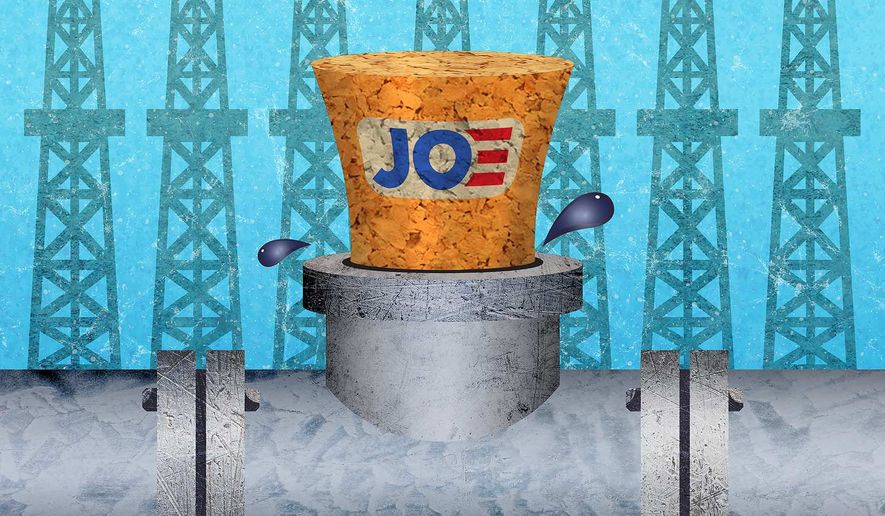OPINION:
To forestall rising gas prices, President Biden recently asked the Organization of the Petroleum Exporting Countries (OPEC) to boost crude oil output. OPEC and its allies politely declined, with sources telling Reuters the group believes “oil markets do not need more oil than they plan to release in the coming months.” The President’s request capped off eight months of policy decisions geared towards steering the nation away from fossil fuels and towards 100% renewable energy with the goal of a net-zero emissions economy by no later than 2050. The Biden administration’s Plan A; there is no Plan B – despite the current realities facing our economy and significant challenges surrounding the largescale renewable investment.
Though renewables should undoubtedly play a role in our energy future, albeit as part of an all-of-the-above approach such as the one then-Vice President Biden once supported, it is incredibly shortsighted to enact policies that reduce the nation’s oil and natural gas supply. At the same time, global demand for those products continues to increase. The economy is picking back up again, and increased economic activity always translates into increased energy demand. The Energy Information Administration (EIA) estimated that global consumption of petroleum and liquid fuels will increase by 5.3 million barrels a day this year and forecasted an increase of 3.6 million barrels a day in 2022.
The good news is the United States has the potential to meet both global and domestic demand. New technology has allowed us to tap into our abundant resources more environmentally friendly, providing Americans with affordable, reliable energy and establishing the nation as a universal energy leader. Not only do we have a wealth of in-demand resources, but we also have the means to transport them throughout the country and points beyond. Energy infrastructure like Line 3, Line 5, and the Dakota Access Pipeline (DAPL) are the safest, most efficient, and most environmentally conscious methods of transporting energy resources—far superior to rail cars or tanker trucks.
Pipelines have been an integral part of our energy success and are critical cogs that help keep the nation’s economic engines running. For instance, DAPL recently completed an expansion and is now transporting 750,000 barrels of oil per day, up 180,000 barrels than before. According to its operators, once the entire expansion is operational, as much as 1.1 million barrels per day will flow through DAPL. That should be cause for celebration, both for the nation’s energy security and the American people. Still, there is a vocal contingent of environmental groups who are dismayed by this news.
Nonetheless, challenges remain. Despite a resounding loss in federal court over the summer—the judge ruled that the plaintiffs failed to meet the required burden of proof to order a shutdown—opponents continue to pressure the Biden administration to shut down DAPL – despite its four years of safe operation and critical role in the U.S. economy. They are unhappy he has not consented, and they are equally displeased the professionals at the U.S. Army Corps of Engineers are refusing to shutter the pipeline. At the same time, they complete yet another environmental review.
The Biden administration continues to miss the opportunity to ensure our energy independence while diversifying our overall energy portfolio. So, intent on setting Plan A into motion, the administration suspended oil and gas drilling leases in the Arctic National Wildlife Reserve (ANWR), failed to include energy infrastructure funding in its signature legislation, delayed Trump-era rules that would have eased regulatory burdens on energy developers, and essentially brought about the demise of the Keystone XL pipeline.
The Biden administration can continue to take us on a path that handcuffs our energy potential and includes going hat-in-hand to foreign nations every so often, undermining our energy security along the way. Or they can unleash that potential by investing in our pipeline infrastructure and encouraging exploration and safe extraction of oil and natural gas, firmly establishing our energy independence and ensuring that the future economic success of our nation does not depend on the decisions of foreign entities like OPEC.
• Tom Magness is a strategic adviser to Grow America’s Infrastructure Now, and formerly served as a commander in the U.S. Army Corps of Engineers.




Please read our comment policy before commenting.